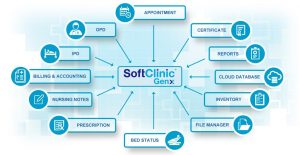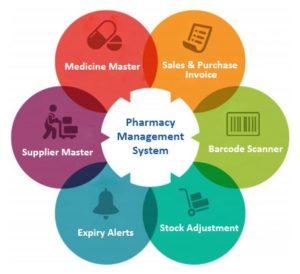Patient Care and Operational Efficiency- the ingredients of success for healthcare organizations
November 9, 2015Improving Operational Efficiency in Healthcare with Integrated Information Systems
The healthcare industry is going through a much-needed transition phase. More and more healthcare establishments- private clinics, hospitals and nursing care centers are shifting to a value-based care model.
The core focus of healthcare organizations in the modern era is to improve the quality and accountability of care while decreasing costs and enhancing operational efficiencies.
While in the past, the two aspects- improving quality and enhancing efficiency might appear hard, today, with the use of modern technologies, it is becoming easier day by day. The main focus area to enhance the efficiency of operational processes is to streamline communication and coordination between independent clinical systems.
Improving Patient Care through Real-time Communication
Facilitating patient care coordination between providers, caregivers, healthcare setups and treatments is the way forward. As clinical systems become more connected using modern technologies, physicians, nursing care providers, laboratories and other stakeholders can work in conjunction to improve the quality of care.
Also, real-time communication and coordination ensure that doctors get access to the right information at the right time, which reduces mistakes and inefficiencies in operational procedures.
According to recent research, failure to communicate and coordinate in real time within healthcare systems lead to inefficiencies and are a major cause of death and injuries in hospitals. Some reports claim that such coordination failures cost hospitals $12 billion annually.
According to recent research, failure to communicate and coordinate in real time within healthcare systems lead to inefficiencies and are a major cause of death and injuries in hospitals. Some reports claim that such coordination failures cost hospitals $12 billion annually.
The answer to all these inefficiencies and failure lies in using technology to build and implement integrated information systems within hospitals and healthcare centers.
Achieving Excellence through Integrated Hospital Management Solutions
Collaboration is the key to achieving efficiency in any sector. And when it comes to a critical segment like healthcare, care delivery should be in the form of a linear chain. From one stakeholder to another, communication should flow, seamlessly.
For example, an integrated hospital management software would take care of EHR, streamline appointments, manage pharmacy inventory and connect laboratories directly to physicians for faster diagnosis and care delivery. An integration system should essentially comprise of the following modules for improved efficiency and better care:
1. Hospital Information System
A hospital information system allows healthcare institutions to manage various administrative, clinical, financial and operational aspects. HIS allows health centers to improve patient care by reducing patient wait times by digitizing the information flow across multiple departments.
A clinic or hospital information system manages OPD, IPD, patient appointments and lot more to keep everything organized and in control.

2. Pharmacy Management System
A pharmacy management system allows smooth functioning of pharmacy inside a hospital. Using a digital PMS, many aspects like replenishing exhausted inventory, managing patient bills, analyzing medicine availability gets streamlined. This helps doctors in making informed decisions regarding treatments and drugs to be administered.

3. Laboratory Information System
A laboratory information system makes it easier for diagnostic laboratories to process, sort, organize and transmit patient reports. By integrating LMS into digital operations, doctors could get real-time updates about the lab reports and take quick treatment decisions. A laboratory information system improves accessibility, accuracy and speediness of diagnostic data, which is critical for improving the quality of care.
Wrapping Up
Creating a digital infrastructure for the healthcare industry is the need of the hour. SoftClinic offers integrated solutions equipped with all essential modules to automate operations, streamline coordination, promote real-time communication and enhance the efficiency of hospitals, easily. Discover more about SoftClinic hospital management software, today.
